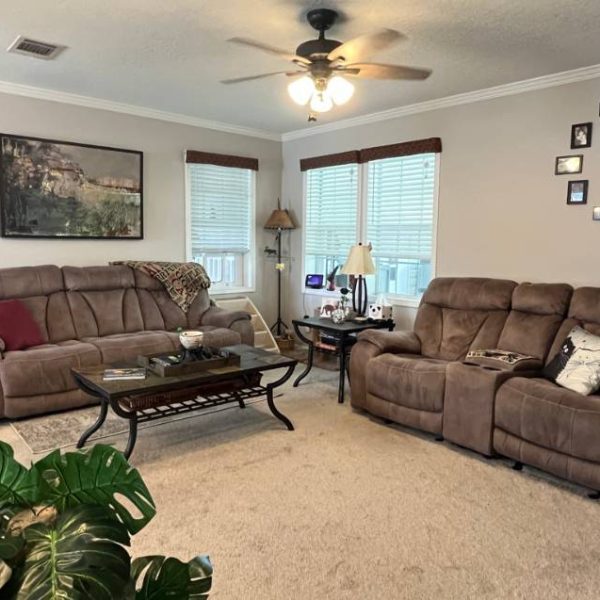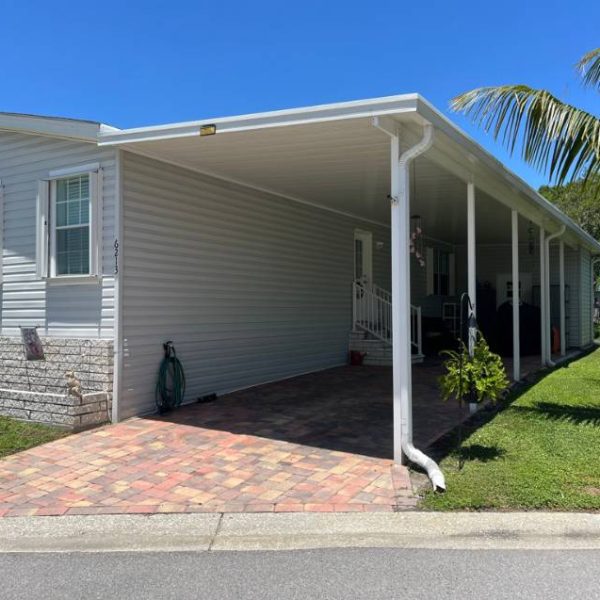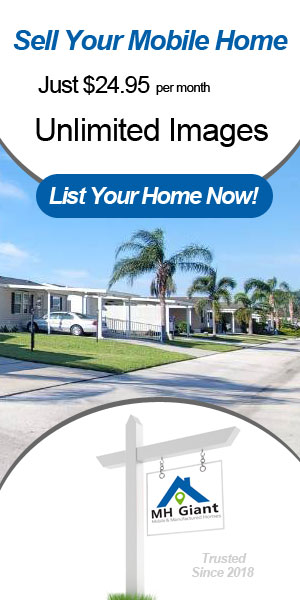Table of Contents
Understanding Mobile Home Insurance: What Does it Cover?
Mobile homes, also known as manufactured homes, offer an affordable and flexible housing option for millions of people. However, just like traditional homes, mobile homes are vulnerable to risks such as fire, theft, and natural disasters. To protect against these risks, mobile home insurance is essential. But what exactly does mobile home insurance cover? In this comprehensive guide, we’ll dive into the specifics of mobile home insurance, its coverage options, and why it’s crucial for mobile homeowners.
What Is Mobile Home Insurance?
Mobile home insurance is a specialized type of homeowners insurance designed specifically for mobile or manufactured homes. These homes, while similar in function to traditional homes, are different in construction and placement, leading to unique risks and insurance needs. Mobile home insurance typically provides coverage for the structure of the home, personal belongings, liability protection, and additional living expenses in case of a covered loss.
The Structure of the Mobile Home
One of the primary components of mobile home insurance is coverage for the physical structure of the home. This is often referred to as “dwelling coverage” and is designed to protect the home from damage caused by various perils.
Covered Perils
Mobile home insurance policies typically cover a wide range of perils, including but not limited to:
- Fire and Smoke Damage: Fires can devastate a home, causing extensive damage to both the structure and the contents. Mobile home insurance usually covers damage caused by fire, including smoke damage.
- Wind and Hail: Mobile homes are particularly vulnerable to high winds and hail, which can cause significant structural damage. Most policies include coverage for these perils, though in some high-risk areas, such as hurricane-prone regions, there may be limitations or exclusions.
- Explosions: While not common, explosions can cause catastrophic damage. Mobile home insurance generally covers damage caused by explosions, whether they occur within the home or nearby.
- Vandalism and Theft: Mobile home insurance also protects against damage caused by vandalism and theft. This includes not only the physical damage to the structure but also the loss of personal property.
- Falling Objects: Coverage typically extends to damage caused by falling objects, such as tree branches or debris from storms.
- Water Damage (Excluding Floods): Water damage resulting from sudden and accidental incidents, such as a burst pipe or an overflowing appliance, is usually covered. However, damage from flooding is typically not covered and requires separate flood insurance.
Replacement Cost vs. Actual Cash Value
When it comes to the structure of your mobile home, it’s important to understand the difference between replacement cost and actual cash value (ACV) coverage.
- Replacement Cost Coverage: This type of coverage pays to repair or replace your mobile home with materials of similar kind and quality, without deducting for depreciation. It ensures that you can rebuild your home to its original state after a covered loss.
- Actual Cash Value Coverage: ACV coverage, on the other hand, takes depreciation into account. This means that the insurance company will pay you the current market value of your home, considering its age and condition, which may not be enough to fully rebuild it.
Many insurance providers offer both options, but it’s crucial to choose the one that best suits your financial situation and long-term needs.
Personal Property Coverage
In addition to protecting the physical structure of your mobile home, mobile home insurance also covers your personal belongings. Personal property coverage ensures that your furniture, clothing, electronics, and other possessions are protected against loss or damage due to covered perils.
Types of Personal Property Covered
Personal property coverage typically includes:
- Furniture: Your sofas, chairs, tables, beds, and other furnishings are covered under most mobile home insurance policies.
- Appliances: Items like refrigerators, ovens, washers, dryers, and other major appliances are protected against covered perils.
- Electronics: Laptops, televisions, smartphones, and other electronic devices are covered.
- Clothing: Your clothing, including shoes and accessories, is included in personal property coverage.
- Jewelry and Valuables: Some policies cover jewelry and other high-value items, but there may be limits. If you own expensive jewelry, art, or collectibles, you may need to purchase additional coverage or a rider.
Coverage Limits and Deductibles
Personal property coverage usually comes with limits and deductibles. The limit is the maximum amount your insurance company will pay for a covered loss, while the deductible is the amount you must pay out of pocket before the insurance kicks in. It’s important to review your policy to ensure that your coverage limits are adequate to replace your belongings in case of a loss.
Replacement Cost vs. Actual Cash Value for Personal Property
Just like with the structure of your mobile home, you can choose between replacement cost and actual cash value coverage for your personal belongings. Replacement cost coverage will pay to replace your items with new ones of similar quality, while actual cash value coverage will only pay for the depreciated value of your items.
Another crucial component of mobile home insurance is liability protection. This coverage protects you if someone is injured on your property or if you accidentally cause damage to someone else’s property.
Liability Protection
Liability protection typically covers:
- Medical Expenses: If a guest is injured in your mobile home, your liability coverage will pay for their medical expenses, including hospital bills, medications, and rehabilitation costs.
- Legal Fees: If the injured party sues you, liability coverage will help pay for legal fees, including attorney costs and court fees.
- Property Damage: If you or a family member accidentally damages someone else’s property, liability coverage will pay for the repairs or replacement.
Coverage Limits
Liability coverage typically comes with a limit, which is the maximum amount your insurance company will pay in the event of a covered claim. It’s important to choose a limit that adequately protects your assets. Many policies offer a standard limit, but you can usually increase it for an additional premium.
Additional Living Expenses (ALE)
If your mobile home is damaged by a covered peril and becomes uninhabitable, additional living expenses (ALE) coverage can help. ALE coverage pays for the extra costs associated with living elsewhere while your home is being repaired or rebuilt. This can include:
- Hotel Stays: If you need to stay in a hotel while your home is being repaired, ALE coverage will cover the cost.
- Rent: If you need to rent a temporary home, ALE coverage will help pay for the rent.
- Meals: ALE coverage can also cover the cost of meals if you’re unable to cook in your temporary living situation.
- Transportation: If you need to travel further to work or school from your temporary home, ALE coverage can help with transportation costs.
ALE coverage is usually limited to a certain percentage of your dwelling coverage, so it’s important to understand the limits and ensure that they are sufficient for your needs.
Optional Coverages
In addition to the standard coverage options, mobile home insurance policies often offer optional coverages that you can add to your policy for an additional premium. Some common optional coverages include:
- Flood Insurance: As mentioned earlier, standard mobile home insurance does not cover flood damage. If you live in a flood-prone area, purchasing separate flood insurance is essential.
- Earthquake Insurance: Standard policies also do not cover earthquake damage. If you live in an area prone to earthquakes, you may need to purchase separate earthquake insurance.
- Replacement Cost for Personal Property: While standard personal property coverage may only offer actual cash value, you can usually upgrade to replacement cost coverage for an additional premium.
- Water Backup Coverage: This coverage protects against damage caused by water backing up through sewers or drains, which is not typically covered by standard policies.
- Identity Theft Protection: Some mobile home insurance policies offer identity theft protection, which can help cover the costs associated with restoring your identity if it’s stolen.
Exclusions and Limitations
It’s important to note that mobile home insurance, like all insurance policies, has exclusions and limitations. Common exclusions may include:
- Wear and Tear: Insurance policies do not cover damage resulting from normal wear and tear or lack of maintenance.
- Mold: Mold damage is often excluded or limited in coverage unless it results from a covered peril, such as water damage from a burst pipe.
- Intentional Damage: Damage caused intentionally by the policyholder or a member of the household is not covered.
- Business Use: If you run a business out of your mobile home, your insurance policy may not cover business-related losses unless you have a specific endorsement.
Why Mobile Home Insurance Is Essential
Mobile home insurance is not just a legal requirement in many places, but it is also a crucial safeguard for protecting your investment and financial security. Without proper insurance, you could be left with significant out-of-pocket expenses in the event of a disaster or lawsuit.
Given the unique risks associated with mobile homes, such as their vulnerability to certain weather conditions and the potential for damage during transportation, having comprehensive coverage is essential. Additionally, mobile home insurance provides peace of mind, knowing that your home and belongings are protected, and that you have liability coverage in case of accidents.
Final Thoughts
Mobile home insurance is a vital tool for protecting your home, belongings, and financial well-being. Understanding what your policy covers—and what it doesn’t—can help you make informed decisions about the level of coverage you need. Whether you’re new to mobile home ownership or looking to review your current policy, it’s important to work with a knowledgeable insurance agent who can help tailor a policy to fit your specific needs.
By ensuring you have the right coverage in place, you can enjoy the comfort and security of your mobile home with confidence, knowing that you’re protected against life’s unexpected events.


 Another crucial component of mobile home insurance is liability protection. This coverage protects you if someone is injured on your property or if you accidentally cause damage to someone else’s property.
Another crucial component of mobile home insurance is liability protection. This coverage protects you if someone is injured on your property or if you accidentally cause damage to someone else’s property.
